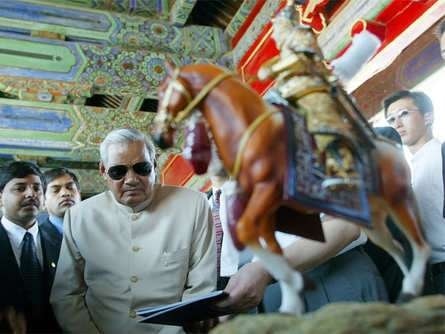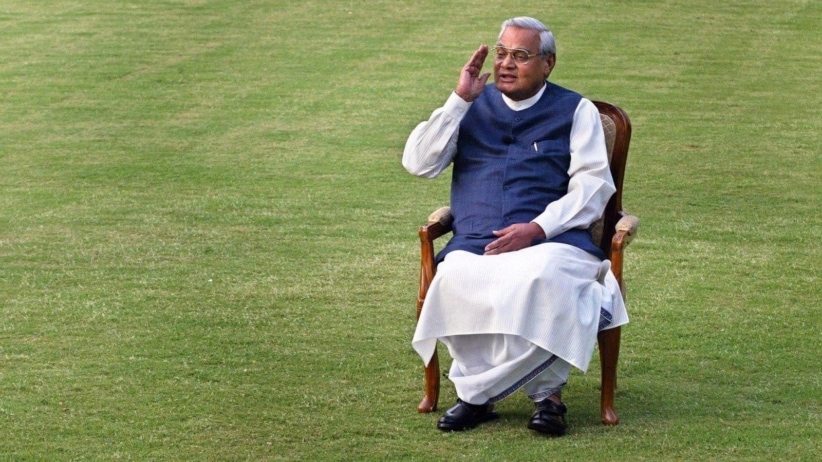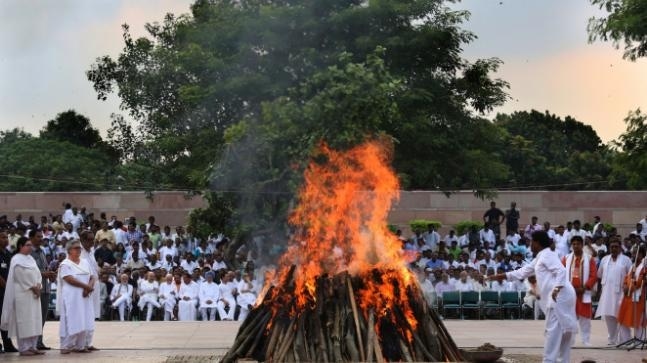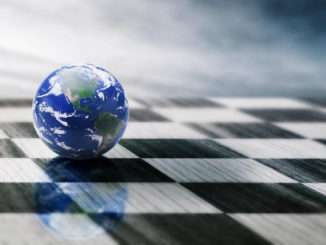
NEW DELHI – Former Indian prime minister and statesman, Atal Bihari Vajpayee, passed away on Thursday following prolonged illness. He was 93.
He breathed his last a little after 5pm at New Delhi’s All India Institute of Medical Sciences. The veteran politician had been admitted there since June 11 following urinary and chest complications.
A long-standing parliamentarian and deeply respected leader across the political spectrum, Vajpayee served as the head of the Indian government three times. He ruled the country for 13 days in 1996, 13 months in 1998 and for five years from 1999.

As prime minister, he won accolades for reducing the role of government in running businesses and building a national ring of highways. In 1999, his army defeated Pakistan in the 10-week war in Kargil in Indian-administered Kashmir.
His political roots lay with the right-wing Rashtriya Swayamsevak Sangh (RSS), the Hindu nationalist organization from which India’s governing Bharatiya Janata Party (BJP) draws its ideological roots.
He had announced his retirement in December 2009 after over six decades in public life.
Mr. Vajpayee was born on December 25, 1924, to Krishna Devi and Krishna Bihari Vajpayee, who was a poet and schoolmaster.
He joined the RSS, BJP’s ideological mentor, in 1939. In 1942, he and his brother were arrested during the Quit India movement launched against the British. In 1951, he was asked by RSS to work for the newly former Bharatiya Jana Sangh, the predecessor of the BJP.
He entered the Rajya Sabha as a 37-year-old in 1962 before returning to the Lok Sabha five years later. Over the next four decades, he was re-elected to the Lok Sabha nine times.
He spent months in prison in the Emergency Rule of 1975 imposed by Indira Gandhi’s Congress government.
He also became India’s foreign minister and made efforts to improve relations with the country’s two neighbors, Pakistan and China.

Poetry was his most preferred expression and delivered his message effectively in a few well-chosen words.
In 2009, Vajpayee was indicted along with LK Advani and 66 others by the Justice Manmohan Singh Liberhan Commission – constituted to look into the demolition of Babri Mosque.
Right-wing Hindu mobs tore down the 16th-Century Babri mosque in India’s holy city of Ayodhya in December 1992, claiming that it was built on the site of a temple destroyed by Muslim rulers. The riots that followed killed nearly 2,000 people. More unrest followed, with explosions in Mumbai killing 257 people, allegedly an act to avenge the killing of Muslims in the riots.
The 2002 riots in the western state of Gujarat were also a setback for Vajpayee-led BJP government. The riots began after 60 Hindu pilgrims died in a train fire blamed on Muslims. The violence left more than 1,000 people, mostly Muslims, dead, and was among India’s worst outbreaks of unrest.
Narendra Modi, then the chief minister of Gujarat and now India’s prime minister, was accused of turning a blind eye when Hindu mobs went on a rampage of revenge.
Vajpayee lost face and tried to sack Mr. Modi, but more hardline elements in the party prevented him from doing so.

Often described as the “right man in the wrong party”, he was the liberal face of the BJP, the man who mainstreamed the right.
Atal Bihari Vajpayee was awarded with the country’s highest civilian award for the 1998 nuclear tests 16 years later.
Since 2009, Mr. Vajpayee had largely been confined to his home because of his health.
He was cremated in New Delhi.



